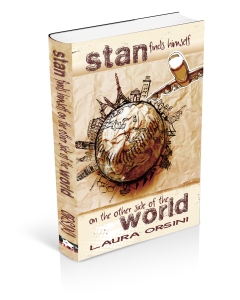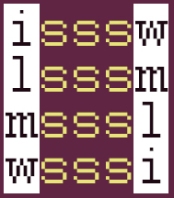Did your editor actually deliver what they promised?
Having begun my publishing career as a professional editor, I’ve written a number of posts about how important editing is to your success as an author. Whether it’s your first book or your twenty-first, you’ve got to pay for editing if you intend to make the best book you can. I realize that many authors are struggling to budget time and money to get their books published. Sure, 3 cents a word sounds like a LOT of money, especially when you’re talking about a 100,000-word novel. But you get what you pay for – and if you want a book that’s not only error free, but that makes sense, follows a logical story arc, and is eminently readable, you will spend the money.

Editing fees vary wildly, but the pros I know (myself included) run from about 2.5 cents/word to 8 cents/word. And depending on your work, you may need several rounds of editing: content editing (developing the story); line editing (making sure you’re using the right tenses, word choices, syntax); and proofreading (eliminating typos and misspellings). Most authors go with one editor for everything – and this can be a mistake. You need someone other than yourself – even if they’re not a professional – to read the final proof after it has been typeset.
Typesetting means moving the document out of Microsoft Word or Pages into a book design program like InDesign. When the text is pasted into the design program, all formatting is lost and must be re-created. Things like bold, italics, and all caps must be reformatted in the design program. Additionally, the cut-and-paste operation likely happens in pieces, leaving open the possibility for dropped words or phrases. If you’re going to publish a professional book, you will have a proofreader go over the book after it’s been laid out – not while it’s still a Word doc that has many iterations still to go.
So here’s the million dollar question: How do you know you’ve received your money’s worth from your editor/proofreader?
I recently read two books by local authors I know personally. One was a magnificent story told with lyrical writing that literally took my breath away at times. And I was unable to give it a 5-star review because it had enough typos in it that it wasn’t a perfect read. They were small things, like inconsistent use of the Oxford comma (either use it or don’t – just be consistent about it) and occasional use of the nonexistent word alright – things many a reader might have missed or overlooked. Still, it was enough to stop me at times. The other one may be a good story, but it has so many typos, misspellings, omitted words, and wrong words (e.g., sequenced when the word should have been sequined) that it is virtually unreadable. I am unable to get past the mistakes long enough to see the story or care what happens to the characters. I headed to Amazon to see what others thought about the book. There are only two reviews so far, and both are 5-start reviews – which makes me think those reviewers must be friends of the author.
Both authors paid for alleged professional editing. And, I presume, they thought they were getting an even exchange – quality work in exchange for whatever fees they paid. Not knowing how much each paid, I can’t say who took the bigger hit – but I have a guess. One used an editor “who came highly recommended through Bay Area Independent Publishers group.” The other used a local guy who is known for being fast and inexpensive. Surprise that the BAIP-recommended gal didn’t deliver – not so much with the guy who promises to beat anyone else’s prices.
I contacted each author and gave them my feedback – and explained my hesitancy to write reviews of their books as I had read them. I wouldn’t typically have said anything to the authors, but both of them personally asked me to review their books. That means they opened themselves up to my professional advice, so I provided it honestly. I made suggestions to the first author about simple ways to nudge my review of his book from 4 stars to 5. I told the second author I recommended he pay for another professional edit/proofing (with a different editor/proofreader) before sending his book out for any further reviews.
So back to our question: How do you know you’ve received your money’s worth from your editor/proofreader?
This is something of a troubling conundrum. One would expect professional writers to recognize mistakes like tense and subject/verb incongruities, but some don’t. And it’s  particularly difficult to see errors in your own work – in large part because you’ve spent so much time with it and are so close to it that it’s easy to read over the mistakes, to add in the missing word and just keep going. So one thing I would advise is that an author read their work out loud, after the final proofreading has occurred. That’s when you notice everything, because you’re reading to speak, not skimming or assuming. So missing words jump off the page at you. Wrong tenses catch your ear. Of course, this won’t help if you don’t already know that the correct spelling is always all right.
particularly difficult to see errors in your own work – in large part because you’ve spent so much time with it and are so close to it that it’s easy to read over the mistakes, to add in the missing word and just keep going. So one thing I would advise is that an author read their work out loud, after the final proofreading has occurred. That’s when you notice everything, because you’re reading to speak, not skimming or assuming. So missing words jump off the page at you. Wrong tenses catch your ear. Of course, this won’t help if you don’t already know that the correct spelling is always all right.
Secondly, you’ve paid a professional to edit your work – but now you need to find a trusted friend, track down your high school English teacher, or locate someone in your circle who earned an English degree prior to the turn of the century and have them read your book. If they don’t have the time (or want to be paid for the task) to read the whole book, have them spot-check different chapters and sections. Make sure your editor didn’t go gangbusters at the start, and then rush to finish and do a shoddy job on the last three chapters.
Whether you write fiction or nonfiction, editing will probably be the most expensive aspect of your publishing process. Make sure you budget well – and then, double-check to be certain the editor/proofreader delivered as promised.
Laura
__________________
We welcome and encourage your thoughtful, courteous comments below.
Visit our website to download your free eBook, The First-Time Author’s Guide to Hiring the Right Editor for YOU. If you’d like more information about our editing services, email us or call us today for your complimentary 15-minute consultation! 602.518.5376


 annual revenues of about $16 billion, including antique stores. In that same article, NARTS references
annual revenues of about $16 billion, including antique stores. In that same article, NARTS references 

 What happens whenever you look at a book – or purchase a book – on Amazon?
What happens whenever you look at a book – or purchase a book – on Amazon?
 You are shown a string of other titles under the heading: “Customers Who Bought This Item Also Bought.”
You are shown a string of other titles under the heading: “Customers Who Bought This Item Also Bought.”
 the Shrew.
the Shrew.
 Comments section below. Of course, I’m hoping the honor system is still alive and well. One condition of Team Trivia is that Google, phoning a friend, and cell phones in general are disallowed because – duh! – it’s unsportsmanlike. I’ll have no way of knowing whether or not you cheated – but I hope Marcie’s readers are an honorable bunch. No prizes for the right answers – just the satisfaction of knowing you’re one smart cookie. I will post the answers at the end of Thursday’s blog post (8/13/15).
Comments section below. Of course, I’m hoping the honor system is still alive and well. One condition of Team Trivia is that Google, phoning a friend, and cell phones in general are disallowed because – duh! – it’s unsportsmanlike. I’ll have no way of knowing whether or not you cheated – but I hope Marcie’s readers are an honorable bunch. No prizes for the right answers – just the satisfaction of knowing you’re one smart cookie. I will post the answers at the end of Thursday’s blog post (8/13/15). the 2 points we’d wagered. We wound up taking 3rd place, which we considered a victory!
the 2 points we’d wagered. We wound up taking 3rd place, which we considered a victory! style event. I recently read the first chapter of
style event. I recently read the first chapter of 



 lovers’ event. Several first-time authors, award-winning authors, and authors of a wide variety of genres will be on hand to sell and sign books. Genres of all sorts – from fiction to spirituality to leadership to personal finance. The first 200 attendees to register will receive goody bags! Giveaways on the half-hour. Learn more and get your complimentary ticket at
lovers’ event. Several first-time authors, award-winning authors, and authors of a wide variety of genres will be on hand to sell and sign books. Genres of all sorts – from fiction to spirituality to leadership to personal finance. The first 200 attendees to register will receive goody bags! Giveaways on the half-hour. Learn more and get your complimentary ticket at 































